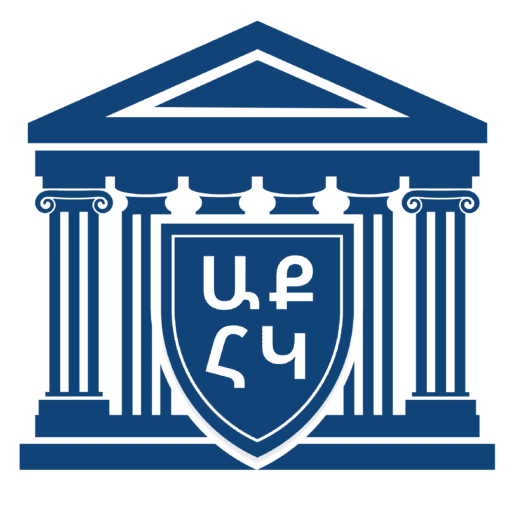Introduction: The General Context
This paper aims to provide a systematic and generalized overview of the political values prevalent in Armenian society over the past five years, exploring their diversity, main trajectories, and, to some extent, their evolving dynamics. The analysis draws primarily on data from the 2024 Caucasus Barometer and the 2021 World Values Survey (WVS). The first part of this study focuses on an overarching summary of value orientations and WVS findings, as well as their implications for Armenia’s political and socio-economic domains. The second part will examine more granular insights, including specific trends and shifts reflected in both the Barometer and the WVS.
The Caucasus Barometer is a project by the Caucasus Research Resource Centers (CRRC), initiated in 2008. It has been conducted in the three South Caucasus republics to assess public perceptions and values regarding social, economic, and political issues. Since 2013, the survey has not been conducted in Azerbaijan. While the methodology maintains a consistent framework across countries, it is also sensitive to each nation’s unique context and current public discourse. This dual structure adds analytical value, as it reveals how local populations perceive core national issues while enabling comparative analyses—especially between Armenia and Georgia. The latter, however, falls outside the scope of the current paper.
The World Values Survey (WVS), by contrast, is a global research project that employs a standardized questionnaire across participating countries. While it may not address specific, locally salient topics, it offers valuable insight into broader societal norms and value systems, allowing for international comparisons. These surveys are resource-intensive and therefore conducted periodically and only when sufficient funding is available. In Armenia, the WVS was previously conducted in 2011 and 1997.
The 2021 iteration of the WVS in Armenia was also implemented by CRRC. Given the CRRC’s extensive experience, methodological rigor, and adherence to robust sampling procedures, the results may be considered both reliable and broadly representative of Armenian society as a whole.
Armenia’s Position on the Global Cultural Map of Values
The results of the World Values Survey (WVS) from all participating countries are coded and visualized on a Global Cultural Map of Values, which reflects two principal value dimensions: Traditional vs. Secular-Rational Values, and Survival vs. Self-Expression Values.
Each country’s survey results are positioned within this two-dimensional space. According to the WVS methodology, traditional values emphasize the importance of religion, strong parent-child ties, deference to authority, and adherence to traditional family norms. Societies that score high on this axis typically disapprove of divorce, abortion, euthanasia, and suicide. These communities tend to exhibit high levels of national pride and strong nationalist sentiment.
In contrast, secular-rational values represent a societal orientation that places less importance on religion and traditional family structures, and expresses skepticism towards established authorities. Such societies are generally more accepting of practices like divorce or euthanasia and are less inclined toward nationalism.
The second axis measures survival values versus self-expression values. Survival values prioritize economic and physical security and are often linked to ethnocentric attitudes, lower levels of interpersonal trust, and intolerance toward diversity. In societies oriented around survival, citizens tend to emphasize conformity and stability over innovation and pluralism.
Conversely, self-expression values stress environmental protection, tolerance toward foreigners and minority groups (including LGBTQ+ communities), support for gender equality, and a growing demand for civic participation in economic and political decision-making.

As of the 2023 Global Cultural Map, Armenia’s placement reflects a distinct blend of value orientations shaped by its post-Soviet legacy, security challenges, and gradual modernization. While precise coordinates vary slightly depending on the wave, Armenia generally occupies a space leaning toward traditional-survival values, though some segments of society are increasingly exhibiting features of self-expression, particularly among the younger, urban population.
On the World Values Survey’s Global Cultural Map, Armenia is classified within the Orthodox Europe cluster (depicted in red). However, it is noteworthy that, in terms of value orientation, Armenia lies relatively close to the African-Islamic cluster. Despite its formal affiliation with the Orthodox subgroup, Armenia’s cultural proximity—especially regarding traditionalism and survival values—echoes patterns more commonly found among African and Islamic societies.
A comparison with Georgia reveals further nuance. While Georgia also belongs to the Orthodox Europe cluster, its value orientation has, in recent years, gravitated even more strongly toward traditional norms—bringing it closer to the African-Islamic cluster in terms of societal values. Armenia, by contrast, remains somewhat more balanced, though it still exhibits a dominant orientation toward survival values.
Geographically and culturally, Armenia shows noticeable value similarity with countries such as Kazakhstan, Romania, Bosnia, and Azerbaijan. In Kazakhstan’s case, a gradual shift is observed—from African-Islamic value proximity toward a closer alignment with Orthodox Europe. Azerbaijan’s placement on the map should be interpreted with caution, as it reflects survey results from 2011—the most recent data available for the country between 2005 and 2023.
Within Armenian society, survival values continue to predominate. This prevailing orientation is strongly tied to a confluence of factors: Armenia’s status as a young state, longstanding socio-economic challenges, and—perhaps most significantly—persistent external security threats for over three decades. While a slight shift toward self-expression values was noted between 1997 and 2011, the 2011–2021 interval has not seen substantial progress along this axis.
On the second value dimension—Traditional vs. Secular-Rational values—Armenia occupies a middle position, with a modest tilt toward traditionalism. However, longitudinal data suggest a gradual movement toward secular-rational values, indicating a slow but notable evolution in the societal value structure.
This paper does not intend to engage in the long-standing theoretical debate about the causal relationship between value systems and socio-economic structures—whether, per the Weberian view, values and culture shape social institutions, or, per the Marxist perspective, objective material conditions mold culture and value orientations. Nonetheless, the value systems outlined above are inextricably linked to the socio-political and economic realities of the society and carry practical implications for Armenia’s institutional development.
Thus, Acemoglu argues that under conditions of low social mobility, parents from the middle and lower classes tend to instill values such as obedience, deference to authority, and adherence to established rules—norms that are subsequently rewarded within such systems. In contrast, children raised with values of self-expression, autonomy, and creativity are more inclined toward entrepreneurship and transformative behavior. However, in an unfavourable institutional environment, the value system grounded in autonomy and innovation may, paradoxically, become punishable.
Acemoglu extends these reflections into the political sphere, asserting that a value system rooted in obedience and respect for authority correlates with low levels of political and civic participation. His dichotomy of obedience versus autonomy can be reasonably juxtaposed with the World Values Survey’s traditional versus secular-rational cultural axes.
Empirical evidence to support this correlation in Armenia can be found in the country’s democratization trajectory and the evolving dynamics of traditional values. Another salient indicator reflecting the interdependence between societal values and socio-economic behavior is the motivational structure of entrepreneurship. According to survey data, 79% of entrepreneurs in Armenia launched their businesses out of necessity—driven by a scarcity of job opportunities—rather than out of a purposeful ambition to innovate or create change. This underscores the dominance of survival values over self-expression values in Armenian society.
This phenomenon carries significant implications. The absence of creative or transformational drive in entrepreneurial activity adversely impacts technological advancement, economic development, the deployment of human capital (and its outflow), as well as the consolidation of democratic institutions, civic engagement, and legal consciousness.
Conclusion
To summarize the first part of this analysis, it is essential to underline the following: democracy, economic prosperity, and effective governance are deeply interconnected with the value structures of a given society. The Caucasus Barometer and the World Values Survey provide a robust, data-driven portrayal of Armenia’s current value landscape. These findings can serve both as a foundational resource for policymakers—especially in designing and implementing public policy—and as a strategic reference point in understanding the imperatives for value transformation within Armenian society. The second part of this study will delve into specific topical insights, notable trends, and survey dynamics.
Tigran Mughnetsyan

